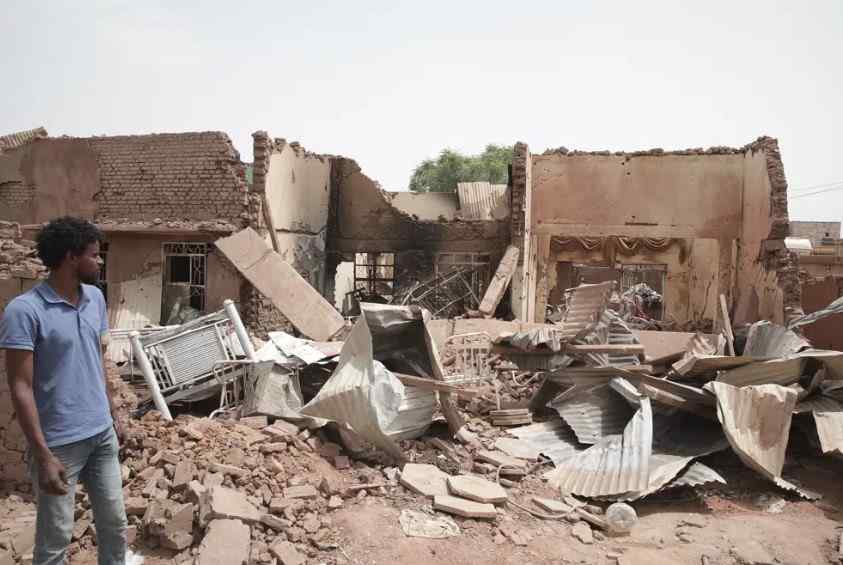A temporary ceasefire has been agreed upon in Sudan as the fighting between two warring factions enters its sixth week. Previous attempts at truces between Sudan’s regular army and the paramilitary Rapid Support Forces (RSF) have often collapsed within minutes of commencement. However, this new deal will be enforced by a “ceasefire monitoring mechanism,” according to a statement released by the United States and Saudi Arabia.
As part of the seven-day humanitarian ceasefire, Sudanese officials have committed to restoring essential services. The ongoing conflict has plunged the country into chaos, resulting in the displacement of over a million people. Stocks of food, money, and essential supplies have rapidly depleted, and aid groups have repeatedly expressed their inability to provide sufficient assistance, particularly in Khartoum, the capital city where much of the violence has occurred.
Both the regular army and the RSF have been urged to allow the distribution of humanitarian aid, restore essential services, and withdraw forces from hospitals. The United States and Saudi Arabia, who sponsored the peace talks in Jeddah, announced that the ceasefire would take effect on Monday evening.
The US State Department, in a statement, acknowledged the previous failed attempts at brokering peace in Sudan but emphasized a key difference this time. It noted that unlike previous ceasefires, the agreement reached in Jeddah was signed by the parties involved and would be supported by a US-Saudi and internationally supported ceasefire monitoring mechanism, although further details were not provided.
US Secretary of State Antony Blinken expressed his support on Twitter, stating, “It is past time to silence the guns and allow unhindered humanitarian access. I implore both sides to uphold this agreement – the eyes of the world are watching.”
The conflict erupted in Khartoum on April 15, following days of tension as members of the RSF were redeployed around the country, a move perceived as a threat by the regular army. Additionally, a power struggle between Sudan’s regular army chief, Abdel Fattah al-Burhan, and his former deputy, Mohamed Hamdan Daglo, who leads the RSF, contributed to the violence.
The fighting has claimed hundreds of lives, and the UN has warned of a deteriorating situation in Africa’s third-largest country, where a significant number of people already relied on aid prior to the conflict. Peace talks between the warring factions began two weeks ago in the Saudi capital.
On May 11, both sides signed a commitment aimed at laying the groundwork for humanitarian assistance in Sudan. However, earlier this week, UN aid chief Martin Griffiths reported “important and egregious” violations of that agreement, which fell short of a ceasefire.
Reports of violence continue to emerge from various parts of the country, with eyewitnesses reporting strikes in southern Omdurman and northern Bahri on Saturday. Since April 15, at least 250,000 refugees have crossed into neighbouring countries, and an additional 843,000 people are internally displaced, according to the United Nations refugee agency.
Aid agencies believe the actual numbers are much higher, as people continue to flee and thousands remain unregistered. Most refugees are currently in informal settlements along the border, leaving them at risk if they are not relocated further into the country before the rainy season begins in four weeks.
The UNHCR has started to relocate approximately 1,000 people, but logistical challenges and funding shortages pose significant obstacles. Chad, which was already strained in assisting approximately 600,000 refugees prior to the Sudan crisis, now faces additional burdens.
Samantha Power, the chief of the United States Agency for International Development (USAID), recently announced $100 million in additional funding to Sudan and countries affected by the conflict.
Image Credit: Marwan Ali/AP




